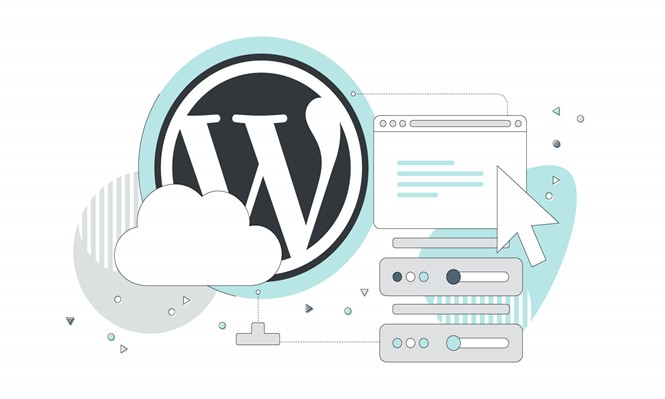Are you ready to navigate the ever-evolving landscape of web development after getting the best SSD WordPress hosting? As the digital world expands, two terms that often come up are "web application development" and "website development." But what sets them apart?
How do they differ in their approach and purpose?
In this blog, we'll embark on a journey to unravel the distinctions between web application development and website development.

Why is Website and Web Application Development Important for Businesses and Developers?
In the world of online presence, "web application development" and "website development" are often used interchangeably, but they are distinct.
Understanding these differences is crucial, whether you're a business owner establishing an online presence or a developer improving your skills.
We'll explore these distinctions and their relevance to SSD WordPress hosting.
Website development involves creating web pages using HTML, CSS, and sometimes JavaScript to convey information or engage users through content, images, and media.
Websites serve as digital brochures or portfolios for businesses and individuals, focusing on user-friendly interfaces and content delivery. They are ideal for e-commerce, blogs, news portals, and personal websites.
SSD WordPress hosting with faster Solid-State Drives (SSDs) ensures quick data retrieval and is vital for seamless user experiences in website development.
What Is Web Application Development?
Web application development involves creating interactive and dynamic web-based software applications that perform specific functions or tasks.
Unlike websites, web applications are not limited to providing static content; they allow users to input data, interact with databases, and perform various actions.
Web applications are built using a combination of programming languages, frameworks, and libraries, such as JavaScript, Python, Ruby, and more.
An online email service like Gmail is a typical illustration of a web application.
Users may manage contacts, and compose, send, and receive emails within the application, among other functions. Project management systems, e-commerce platforms, and social networking platforms are more examples.
Web application development typically requires a more complex architecture and database design than website development.
The focus here is on functionality and interactivity, and developers often employ technologies like SSD WordPress hosting to ensure the underlying infrastructure can support the application's performance needs.
SSDs are beneficial for web applications because they allow for rapid data retrieval and processing, reducing loading times and improving user satisfaction.
Key Differences Between Website Development and Web Application Development
Now that we have a basic understanding of both website development and web application development, let's delve into their key differences:
1. Interactivity
Website Development: Websites are primarily informational and offer limited interactivity.
They serve as a platform for presenting content to users, such as text, images, and videos. Interactivity is generally limited to clickable links and contact forms.
Web Application Development: Web applications are highly interactive and often include user accounts, input forms, data processing, and complex functionality. Users can perform actions within the application, and their data may be stored and retrieved from databases.
2. Data Management
Website Development: Websites typically do not require complex data management systems. Content is usually stored in files or a Content Management System (CMS) like WordPress.
Web Application Development: Web applications rely on databases to store and manage data.
They use technologies like SQL or NoSQL databases to handle user information, transactions, and application-specific data.
3. Frameworks and Languages
Website Development: Website development primarily involves HTML, CSS, and JavaScript for front-end development.
Content management systems like WordPress or website builders may also be used.
Web Application Development: Web applications are built using a variety of programming languages and frameworks, including JavaScript (Node.js, Angular, React), Python (Django, Flask), Ruby (Ruby on Rails), and others.
4. Hosting Requirements
Website Development: Traditional hosting solutions are sufficient for websites, but SSD WordPress hosting can enhance website performance and speed, which is especially important for SEO and user experience.
Web Application Development: Web applications often require more robust hosting solutions, such as virtual private servers (VPS) or cloud hosting, to handle the increased load and resource demands of complex functionality.
5. User Base
Website Development: Websites cater to a broad audience and aim to provide information or entertainment to a wide range of visitors.
Web Application Development: Web applications typically target a specific user base and offer functionality tailored to their needs.
Examples include customer relationship management (CRM) systems for businesses or learning management systems (LMS) for educational institutions.
How SSD WordPress Hosting Benefits Both?

While SSD WordPress hosting is often associated with website development, it can benefit both website owners and web application developers in several ways:
1. Faster Loading Times
SSDs offer faster data access, which results in quicker loading times for both websites and web applications.
This improves user satisfaction and can positively impact SEO rankings.
2. Reliability
SSDs have no moving parts, making them more durable and less prone to failure than traditional HDDs. This increased reliability is essential for maintaining the uptime of websites and web applications.
3. Scalability
SSD hosting services often come with scalable resources, allowing website owners and web application developers to accommodate increasing traffic and resource demands easily.
4. Improved Security
SSD WordPress hosting providers in the UK typically offer enhanced security features and monitoring, helping protect websites and web applications from cyber threats.
5. Better Performance
The speed and responsiveness provided by SSDs contribute to a better overall performance, ensuring that users have a seamless experience, whether they are accessing a website or using a web application.
In summary, website development and web application development are distinct domains within the realm of web development, each with its own set of characteristics and requirements.
The choice between the two depends on your project's goals, functionality needs, and target audience.
When it comes to hosting, SSD WordPress hosting can be a valuable asset for both website owners and web application developers.
The speed, reliability, and scalability offered by fast SSD WordPress hosting can significantly improve the performance and user experience of your online presence in the UK, whether it's a static website or a complex web application.
Understanding these differences and making informed decisions about development and hosting will help you create a successful online presence that meets your goals and serves your users effectively.
22 Nov 2023
 GBP (£)
GBP (£)
 USD ($)
USD ($)
 EURO (€)
EURO (€)







